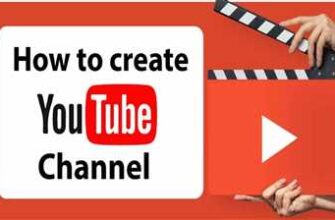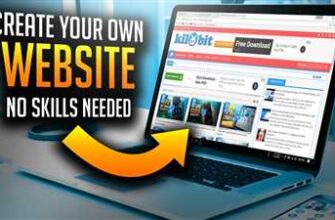
Are you ready to step into the exciting world of mobile app development? Whether you’re a beginner or an experienced developer, learning how to make apps can open up a world of possibilities. In today’s digital age, there’s a high demand for apps, and by learning the process, you can become part of this dynamic industry.
There are various paths you can take to learn app development. You can sign up for online courses, attend workshops, or even hire a mentor. If you’re self-motivated, there are many free resources available online that can guide you through the process. With so many options to choose from, you can find a learning method that suits your preferences and schedule.
App development can be a rewarding career choice or a great way to make extra money. Some freelancers make a living by creating apps for clients, while others work on their own passion projects. If you have a great idea for an app, you can bring it to life by learning the necessary skills and following a step-by-step process. Whether you’re planning to start your own app business or planning to collaborate with co-founders, the power to create and innovate is in your hands.
How to Become a Mobile App Developer: A Step by Step Guide

Are you interested in mobile app development? Do you have a great idea for an app but don’t know where to start? Becoming a mobile app developer may be the career path for you. In this step by step guide, we will walk you through the process of becoming a mobile app developer from start to finish.
- Step 1: Learn the Basics
- Step 2: Gain Experience
- Step 3: Sign up for a developer account
- Step 4: Plan your app
- Step 5: Start coding
- Step 6: Test and debug
- Step 7: Publish your app
- Step 8: Keep learning and improving
The first step in becoming a mobile app developer is to acquire a basic understanding of app development. There are many online resources and tutorials available that can teach you the fundamentals of programming languages such as HTML, CSS, and JavaScript. Take advantage of these resources to gain a solid foundation.
Once you have learned the basics, it’s important to gain hands-on experience in app development. Consider working on small projects or freelancing to build your portfolio. This will not only provide you with practical experience but also demonstrate your skills to potential clients or employers.
If you’re serious about becoming a mobile app developer, sign up for a developer account with the app stores you plan to target, such as Apple’s App Store or Google Play Store. This will give you access to the necessary tools and resources to publish your apps.
Before diving into development, it’s essential to plan your app thoroughly. Identify your target audience, define the features and functionalities, and create a wireframe or prototype. This planning phase will save you time and effort later in the process.
Now that you have a solid foundation, hands-on experience, and a clear plan, it’s time to start coding your app. Depending on your skills and the complexity of your app, this process may take anywhere from a few weeks to several months. Stay focused and dedicated.
After coding your app, it’s crucial to thoroughly test and debug it to ensure its functionality and usability. Make use of emulators, simulators, and real devices to test your app on different platforms and screen sizes.
Once you’re confident that your app is ready for the public, it’s time to submit it to the app stores for review and publication. Follow the guidelines and policies of each app store and be prepared to make any necessary changes or updates based on their feedback.
The mobile app development field is constantly evolving with new technologies and trends. To stay relevant and competitive, continue learning and improving your skills. Attend workshops, conferences, and online courses to expand your knowledge and keep up with the latest developments.
Becoming a mobile app developer can be a challenging but rewarding journey. With the right planning, dedication, and continuous learning, you can become a successful mobile app developer and turn your app ideas into reality.
My experience with cofounders and freelancers
When I started my journey into app development, I quickly realized that I would need a team to bring my vision to life. After doing some research and considering my options, I decided to hire freelancers and find cofounders to join me on this exciting venture.
Working with freelancers was a great way to get started. It allowed me to tap into the expertise of professionals who could help me navigate the intricacies of mobile app development. I hired freelancers who specialized in different areas, such as design, coding, and marketing, to ensure that my app would be top-notch.
One thing I learned during my experience with freelancers is the power of communication. As a project manager, I had to constantly be in touch with my freelancers to make sure we were all on the same page. We set up regular check-ins and used project management tools to keep track of our progress. It was essential to stay organized and maintain open lines of communication to ensure the success of the app.
However, working with freelancers also had its challenges. While they brought valuable skills to the table, they were not as invested in the project as cofounders would be. This lack of ownership sometimes made it difficult to motivate freelancers to meet deadlines or go the extra mile. Additionally, freelancers often have multiple clients and projects, which means they may not be available at all times.
That’s where cofounders come in. I was fortunate to find cofounders who shared my passion and vision for the app. We were able to work together closely, bouncing ideas off each other and providing mutual support. Cofounders are great because they are fully committed to the success of the app. They are willing to put in the extra time and effort to ensure that everything is done to the best of their abilities.
Having cofounders also brought a sense of stability to the project. We were all in it together, sharing the highs and lows of the app development process. When one of us felt overwhelmed or discouraged, the others were there to provide support and reassurance. It made the journey less daunting and more enjoyable.
While freelancers and cofounders offer different advantages, both have been instrumental in the success of my app. My advice to anyone starting their own app development journey is to carefully consider their options and find a balance that works for them. Whether you’re hiring freelancers or searching for cofounders, make sure to communicate clearly, set realistic expectations, and foster a supportive and collaborative environment.
| Some related articles: | Sources |
|---|---|
| How to start a mobile app development project | mad-learn.com |
| The power of cofounders in app development | techcrunch.com |
| 5 tips for hiring the right freelancers for your app | entrepreneur.com |
Planning a Power Apps app or project
If you’re looking to create a mobile app or project using Power Apps, it’s important to have a well-thought-out plan in place. This guide will take you through the planning process, step by step, to ensure a successful and efficient development experience.
First, gather your co-founders or team members to brainstorm the purpose and goals of your app or project. Discuss what features and functionalities you want to include, as well as any specific target audience or market you’re aiming for.
Next, you’ll need to determine the scope of your app or project. Consider the complexity and timeline of development – are you looking to build a simple app in a few weeks, or a more complex project that may take months to complete?
Once you have a clear understanding of what you want to build, it’s time to think about hiring a Power Apps developer or freelance developer. Consider their experience, portfolio, and expertise in app development to make the right choice.
Before signing any contracts or starting development, it’s crucial to create a detailed plan that outlines the timeline, budget, and resources required for your app or project. This will help you stay on track and avoid any unexpected issues or delays.
During the planning process, make sure to research and explore available sources and documentation for Power Apps development. There are many online resources, tutorials, and communities that can provide valuable insights and guidance.
In addition to the technical aspects, also consider the user experience (UX) and user interface (UI) design for your app or project. Take the time to create wireframes, prototypes, or mock-ups to visualize and test your ideas before development begins.
Remember that planning is a continuous process – as you gain more insights and ideas, be open to making changes or refinements to your original plan. Be flexible and adaptable, as this will help ensure a successful app or project.
By following these steps and taking the time to thoroughly plan your Power Apps app or project, you’ll be setting yourself up for success. Remember, money and time invested in planning at the start can save you a lot of headaches and costs down the road.
Don’t be afraid to seek guidance – there are many professionals and communities out there that can assist you in your app development journey. Whether it’s through hiring freelancers, collaborating with other developers, or utilizing online resources, embrace the power of teamwork and knowledge-sharing.
So, if you’re ready to start your journey in Power Apps development, make sure to invest the time and effort into planning your app or project. With proper planning and execution, you can create a successful and impactful app that brings your ideas to life and offers value to your users and audience.
| Sources: | – | mad-learn.com |
Sources
If you’re planning to start your mobile app development project but don’t know how to begin, don’t worry! There are several sources that can guide you step by step in the app development process.
Firstly, you can sign up for online courses or tutorials. There are many platforms that offer courses to help you become a mobile app developer. One popular platform is called Mad-Learn, which provides a comprehensive guide to app development. They cover everything from the basics to advanced topics, such as how to hire freelancers or cofounders and how to make money with your app.
If you prefer learning from real-life experience, you can join community forums or attend workshops. These allow you to interact with other app developers and learn from their successes and failures. You can also find mentors who have gone through the app development process and can provide valuable advice.
Another source of information is books and ebooks. There are many books available that cover different aspects of app development, such as app design, coding, and marketing. Some popular books include “App Development for Dummies” and “The Lean Startup.”
Lastly, don’t forget to leverage the power of music and videos. Many developers share their experiences and knowledge through podcasts, webinars, and YouTube channels. These sources offer a more interactive and engaging way to learn, and you can follow along with the videos or listen to them while working on your own app.
Remember, the app development process is a journey that takes time and effort. By utilizing these sources, you can become a more informed and skilled app developer, whether you’re a beginner or have several years of experience.









